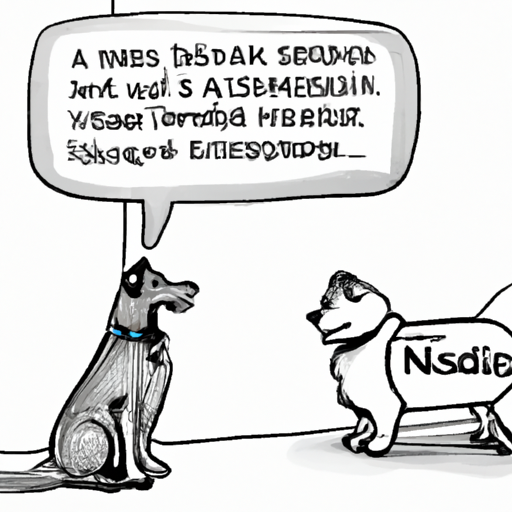Non-steroidal anti-inflammatory drugs, commonly referred to as NSAIDs, are a group of medications frequently used in the veterinary world to manage pain and inflammation in dogs. This article dives deep into the topic to offer you a full understanding of what NSAIDs are, how they work, their benefits, potential side effects, and much more.
Table of Contents
1. Understanding NSAIDs
2. The Working of NSAIDs
3. Benefits of NSAIDs
4. Potential Side Effects
5. Choosing the Right NSAID for Your Dog
6. Frequently Asked Questions
Key Takeaways
NSAIDs are common medications for relieving pain and inflammation in dogs.
They work by inhibiting the production of certain body chemicals that cause inflammation and pain.
* While they offer significant benefits, NSAIDs can cause side effects, and their use should be closely monitored by a veterinarian.
Understanding NSAIDs
NSAIDs are a type of medication that helps reduce inflammation, pain, and fever in dogs. They are commonly used to manage pain associated with arthritis, surgery, dental procedures, and other conditions that cause discomfort in dogs. They are also used as part of the treatment plan for canine osteoarthritis.
A few common examples of NSAIDs for dogs include carprofen, meloxicam, and deracoxib. These medications are not the same as those intended for human use, such as ibuprofen or aspirin, which can be harmful to dogs.
The Working of NSAIDs
NSAIDs work by inhibiting the production of prostaglandins, body chemicals that cause inflammation, pain, and fever. While prostaglandins serve essential roles in the body, they also contribute to inflammation and pain when the body is injured or in a disease state. By reducing the production of these chemicals, NSAIDs help to control the symptoms of pain and inflammation in dogs. Understanding the science behind the working of NSAIDs can help caregivers make informed decisions about their dogs’ health.
Benefits of NSAIDs
When used under the guidance of a veterinarian, NSAIDs offer significant benefits for dogs. They provide relief from pain and inflammation, improving the quality of life for dogs suffering from conditions like arthritis or recovering from surgery.
Here are some key benefits:
- Pain relief: NSAIDs are effective at managing both acute and chronic pain in dogs.
- Reduced inflammation: They help control inflammation, which can be particularly beneficial for dogs with arthritis or other inflammatory conditions.
- Improved mobility: By managing pain and inflammation, NSAIDs can enhance a dog’s mobility and overall quality of life.
Potential Side Effects
While NSAIDs are generally safe for dogs when used appropriately, they can cause side effects. Some dogs may experience gastrointestinal upset, including vomiting, diarrhea, or loss of appetite. In rare cases, NSAIDs can lead to more serious complications, such as kidney or liver damage.
Any signs of side effects should be reported to the veterinarian immediately. It’s crucial to follow the vet’s instructions regarding the dosage and frequency of NSAID administration to minimize the risk of side effects.
Choosing the Right NSAID for Your Dog
Choosing the right NSAID for your dog is a decision that should be made in consultation with your veterinarian. They will consider factors like your dog’s age, weight, overall health, and the specific condition being treated. Some NSAIDs are more suited to certain conditions than others, and your vet is best placed to make this judgment.
For instance, if your dog is suffering from osteoarthritis, the vet might prescribe carprofen, which is often used for this condition. If your dog recently underwent surgery, they might recommend a different NSAID that’s particularly effective for post-operative pain relief.
Here is a table showing some common NSAIDs and their typical uses:
| NSAID | Typical Use |
|---|---|
| Carprofen | Osteoarthritis, post-operative pain |
| Meloxicam | Osteoarthritis |
| Deracoxib | Post-operative pain, osteoarthritis |
Frequently Asked Questions
1. Can I give my dog over-the-counter NSAIDs meant for humans?
No, many human NSAIDs can be toxic to dogs. Always consult with a veterinarian before giving your dog any medication.
2. How long can my dog stay on NSAIDs?
The duration of NSAID therapy depends on your dog’s condition and the specific NSAID used. Your vet will provide guidance on this.
3. What should I do if I notice side effects?
If you notice any side effects, contact your vet immediately. They may adjust the dosage or switch to a different NSAID.
In conclusion, NSAIDs are a valuable tool for managing pain and inflammation in dogs. However, like all medications, they should be used responsibly and under the supervision of a veterinarian. For more information on canine health and treatments, visit www.onetopdog.com. Here, you can find valuable resources, including articles on pain management for dogs, canine arthritis, and post-operative care for dogs.



